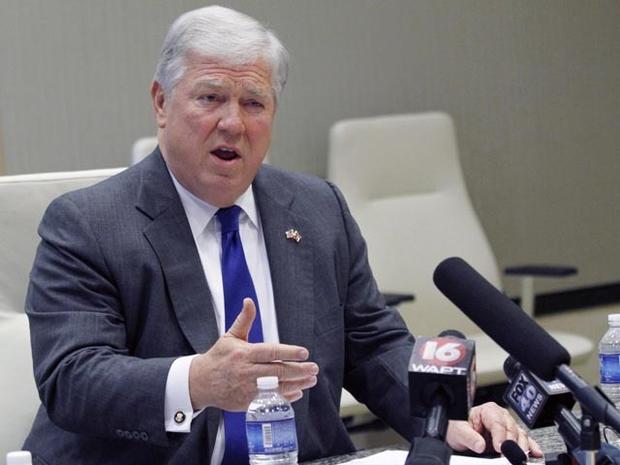Haley Barbour pardons are valid, says Mississippi Supreme Court
(CBS/AP) JACKSON, Miss. - The Mississippi Supreme Court ruled Thursday that some pardons issued by former Gov. Haley Barbour are valid.
In their 6-3 opinion, the justices wrote "we are compelled to hold that - in each of the cases before us - it fell to the governor alone to decide whether the Constitution's publication requirement was met."
Republican Barbour pardoned 198 people before finishing his second term Jan. 10, including four convicted murderers who worked as inmate "trusties" at the Governor's Mansion. Of those pardoned, 10 were in jail at the time.
Democratic Attorney General Jim Hood challenged the pardons. Hood argued before the Supreme Court on Feb. 9 that some pardons didn't meet the requirements of the Mississippi Constitution, which says people seeking pardons must publish notices for 30 days in a newspaper. Hood contended that if ads weren't run in daily papers every day for 30 days, or weekly newspapers once a week for five weeks, the pardons weren't valid.
Barbour's lawyer and the attorneys representing some of the pardon recipients argued that a Mississippi governor's pardon power can't be challenged because of the separation of powers for different branches of government.
The 10 people who were incarcerated when Barbour pardoned them had the most at stake in the legal challenge. Among those 10, five pardoned inmates have been held in prison on a temporary restraining order pending the outcome of Hood's legal challenge. The five former Governor's Mansion trusties had already been released by the time Hood persuaded a lower court judge to issue that restraining order.
The restraining order required the trusties to check in with corrections officials every 24 hours and show up for court hearings. One of the trusties, Joseph Ozment, moved to Laramie, Wyoming and refused to come back. Although Hood's investigators tracked him down, they could only serve him with the civil summons, which could not be used to compel him to return to Mississippi from another state.
The arguments before the Mississippi Supreme Court concentrated on the 10 inmates who were in custody when pardoned. However, they're not the only ones affected. Those who received pardons after being out of prison for years, some for relatively minor crimes, could lose their chance to have their rights restored, including their rights to vote and to buy firearms.
Complete coverage of the Haley Barbour pardons on Crimesider
